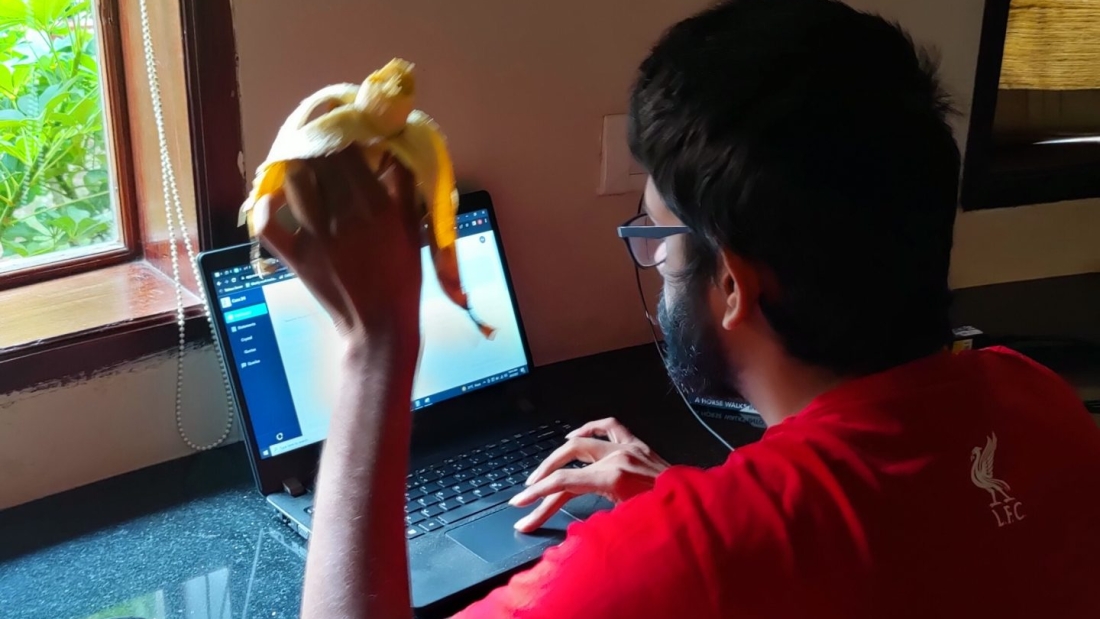Remote work, the by-product of the current digital age and more recently the pandemic, often means you work for not only companies in other cities but also often other parts of the world. Faraway parts that are several hours ahead or behind you. I am now one such worker.
Firstly, a bit of context.
I recently moved to Canada from New Zealand. When you tell people that you’re moving to Canada, the traditional assumption is that you will land there and immediately start looking for a job. But times have changed. So when I tell people that I’ll be working remotely for my current NZ company, I am usually met with awe. Well, is it all fun and games? Let’s find out.
And, a note.
When I began composing this list, I barely had a pro or two. Eventually, I realised some of these things can be classified as both or as I am going to call it, ‘It Is What It Is’ (IIWII).
Pro #1
The (slightly clichéd) digital nomad lifestyle
No remote working listicle can start without invoking the patron saint of millennials – the tanned, margarita-sipping, backpack-toting digital nomad. However, even though a lot of people work from home these days, not all of them cross over to the work-from-anywhere side.
In my case, since I don’t have a flurry of video calls and meetings to do everyday, I can embrace this lifestyle reasonably easily. No more waking up, showering and commuting to work for me (side note: I do miss my bike commute in Auckland though). Your workplace is wherever there’s a steady WiFi connection – a friend’s basement in Montreal works as well as a cute hostel in a nondescript small town. Just hook up and go!
Con #1
Money, taxes and other fun admin stuff
The getting paid aspect of the job, usually one of the best parts, can get a bit complicated when you operate across countries and sometimes, continents. You come face-to-face with concepts like invoicing, double taxation avoidance treaties, Stripe v/s PayPal v/s something else, and so on.
In my case, while I ideally need to get paid directly into a Canadian account, unfortunately we have yet to cross that bridge. This means I keep getting post-tax salary into my Kiwi bank account, which I then transfer to Canada as needed (not a product plug but Wise is amazing for this). So technically I am still getting taxed in New Zealand, and at the same time, not able to contribute to income tax here in Canada. Not an ideal situation.
However, this should change soon as I become a contractor for my company, and a sole proprietorship for tax purposes in Canada. (More on this once I meet a good accountant and sort out my first tax returns.)
IIWII #1
Timezones and work hours
Your work timings are going to make or break your digital nomad dreams. It’s no fun waking up at midnight to start your work day. Besides smashing your circadian clock to pulp, you will also not be able to have the sunlight hours to see and travel.
As someone who works in a timezone 16 hours ahead, I am reasonably fortunate in that I still get to have something of a life that doesn’t revolve around my workday. In fact, Canada and New Zealand being so far apart works in my favour.
When a weary work week begins in Auckland at 8.30 AM on Monday, it is 4.30 PM on a Sunday here in Canada. While this means my day only finishes at 1 AM, at least I get some time in the morning to do things like writing such listicles, running errands and exploring bits of the city I am in. So while an overall pro in my case or that of someone working remotely for US companies from Canada, it could have gone either way.
Pro #2
Travel
Seeing the world is usually one of the top reasons to shun wordly pleasures and possessions like buying a house, having a child, etc., and embrace the digital nomad lifestyle. Travelling to new places while simultaneously working and making an income is the stuff millennial dreams are made of.
Like I’ve mentioned earlier here, if you have a job that lets your work exclusively online and in a timezone that doesn’t go Zakir Hussain on your circadian rhythm, you might be able to explore quite a few places. This is especially true if you love exploring cities and going for a sonder.
On a good day, if I’ve gone to bed by 3.30 AM, I try and wake up by 11. Then, one of three scenarios play out. The first is, if I am in the mood to splurge, I head out immediately, grabbing coffees and food on my walks, and coming back home around 8 or 9 in the evening (when it’s lunch hour in Auckland). The second is, if I am trying to save money, I make easily transportable lunches like tuna sandwiches that I can have in a park or city square. The last scenario is when either the weather is bad, I have a very hectic day ahead or am just being lazy, and I just stay in.
Although I am yet to take leave to travel, I will at some point, if say, I want to go on a full day hike or spend a day at a beach (after all, isn’t that what’s most people think millennials want to do by retiring early).

Image source: https://pkglifestylenews.com/entertainment/celebrity/hrithik-roshan-on-doing-multi-starrer-znmd-many-of-my-fathers-friends-thought-that-it-was-a-big-mistake/
Con #2
No team events
As most of us discovered over the course of the pandemic, working exclusively remotely can get old pretty quick. Even if you are travelling through it, the inability to do everyday office things – like clinking beer bottles at 4 PM on a Friday, sitting with your team for lunch and discussing the difference between couscous and khus-khus (quick tidbit you may possibly never need: the latter being related to poppy is banned in UAE while the former is not), and attending parties like Christmas get-togethers and sausage sizzles – can be hard and lonely for remote workers. (This compounds if you are already far away from friends and family.) Even meeting up every once in a while would be good for morale but in my case, even that is not possible.
IIWII #2
Public holidays
Barring a few big ones like Christmas and New Year’s, your country of work and that of residence/travel may not share a lot of common public holidays. So usually you’d end up working when the rest of the people are enjoying, or the other way around.
So, say if you were to work from India for a company overseas, you’d barely get any of zillion public holidays in a year. Here in Canada too, the overlap with Aotearoa is minimal, despite both being Commonwealth countries. But because I also work differently – starting my week on a Sunday and ending on a Thursday – this has only been a slight inconvenience so far.
